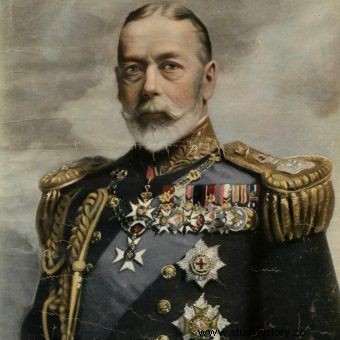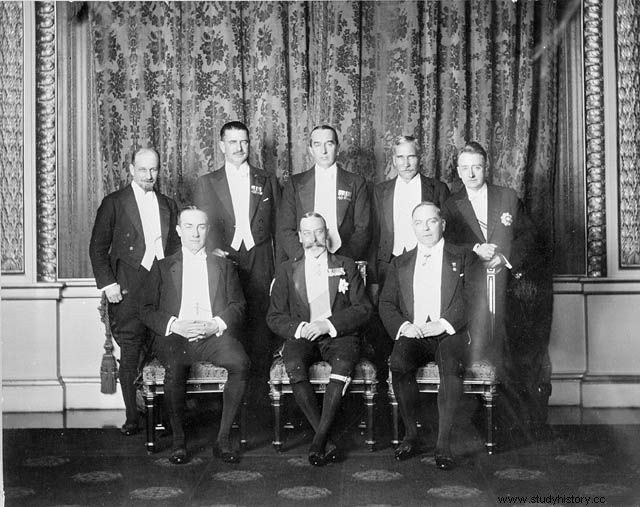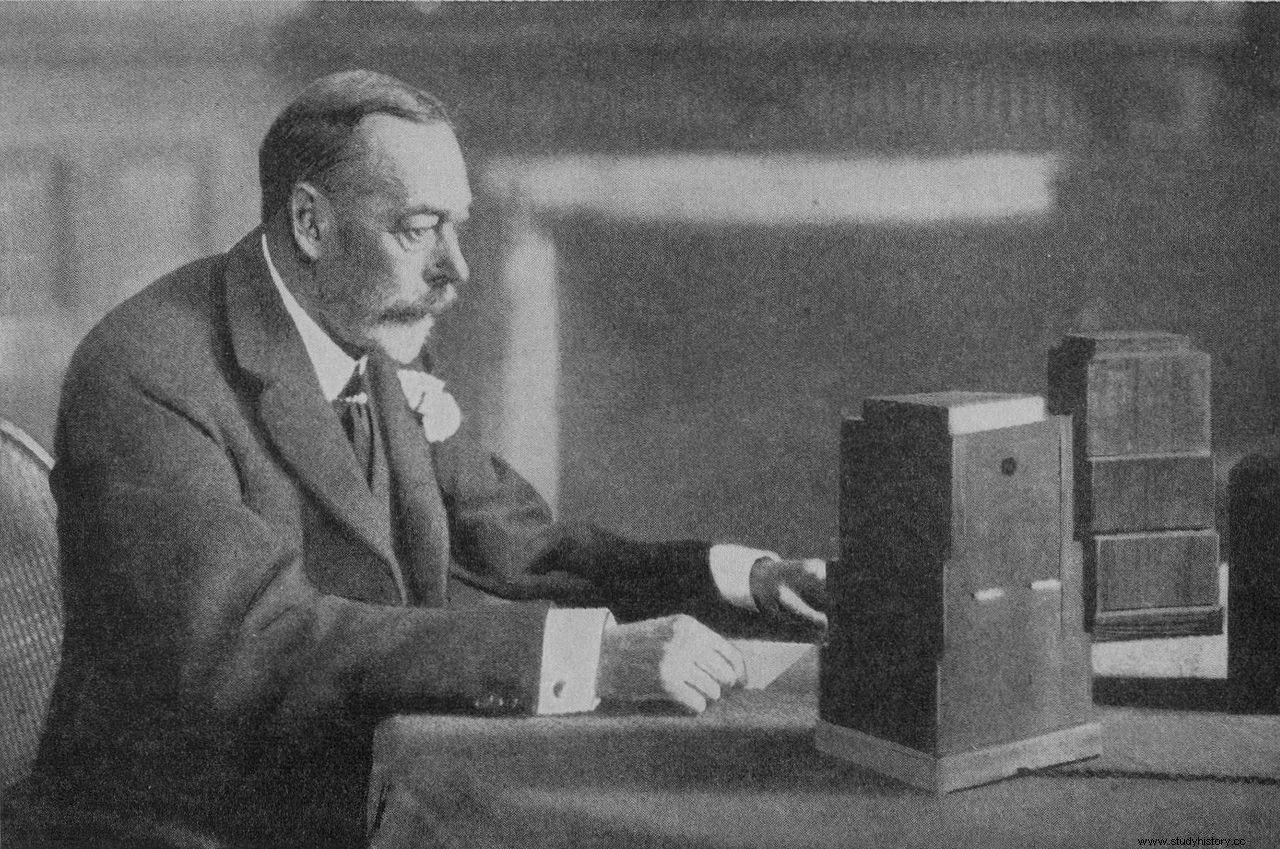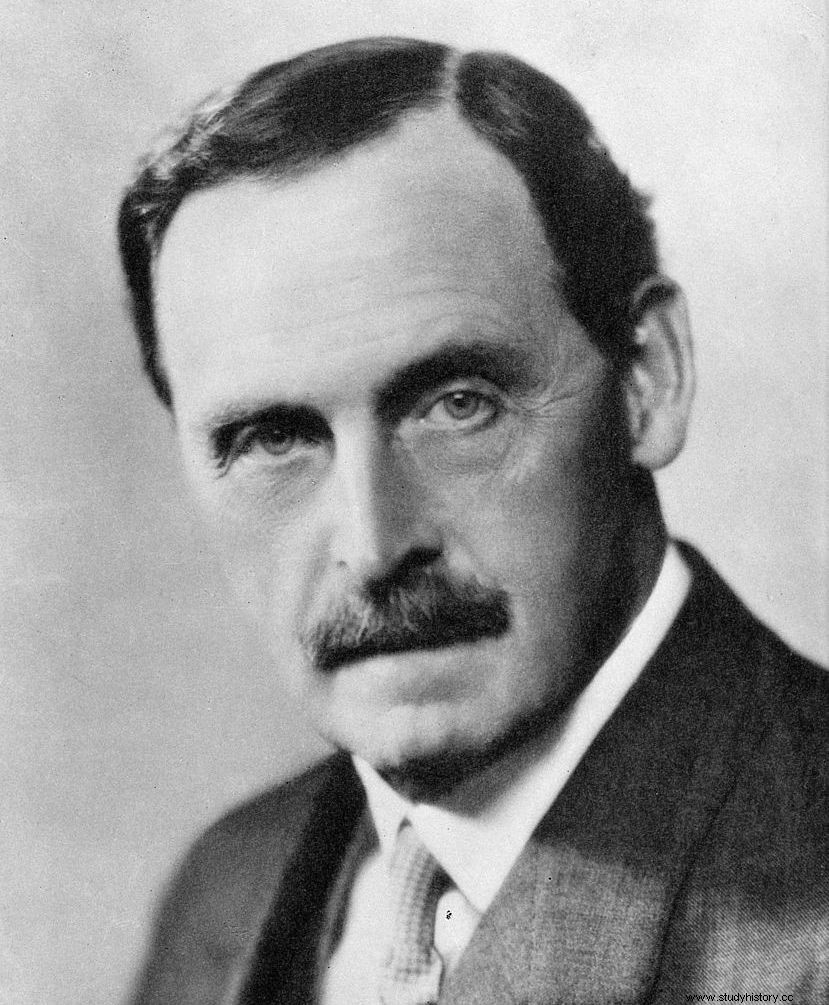He apparently passed away as he reigned - calmly and imperceptibly. In the last moments he was accompanied by his family and a trusted doctor. The circumstances of his death, however, were kept secret for fifty years. For good reason.
George V was not actually going to be king. He was the second son of the then Prince of Wales (and later King) Albert Edward von Sachsen-Coburg und Goth and his wife, the Danish princess Alexandra. In line to succession to the throne of the United Kingdom of Great Britain and Ireland, he was unexpectedly promoted only in 1892, when his older brother, Albert, died of pneumonia. He inherited from him not only the position, but also ... his fiancée - Maria Teck.

Could it be that King George V was euthanized?
It was a marriage of convenience, but quite successful. Just as his reign proved successful - although its end, as it turned out years later, was more surprising than previously believed.
George V - calm reign…
Jerzy (born .. Jerzy Fryderyk Ernest Albert) ascended the throne after his father's death in 1910. He was then 44 years old. His character was already fully formed then, mainly by 21 years of service in the Royal Navy. He was maniacally attached to order, developed a strong sense of responsibility and a belief in the superiority of the British over other nations. Unfortunately, it also resulted in a reduction of horizons and interest in the world. The ruler did not show any broader political interests. He also did not appreciate literature. "People who write books should be silenced," he once said.
However, since he was modest, direct, decent and dutiful to it, the public quickly liked him. Unlike his father, he did not lead a stormy erotic and social life, he did not like games and parties. "The king is a nice peasant, but thank God he doesn't have much in his head," wrote David Lloyd in a letter to his wife.

George V with Prime Ministers of Great Britain and its Dominions at the Imperial Conference, London 1926
Jerzy gained special respect from his subjects during the First World War. At that time, he probably passed the most important test of reign. The royal family originating in Germany, having to make matters worse the German surname Sachsen-Coburg und Gotha, found themselves in a difficult situation. Strong anti-German sentiment prevailed in Great Britain. Jerzy decided to make a meaningful gesture - in 1917 he changed his name to Windsor. Together with Queen Maria, they also actively supported their nation's war effort.
… and a peaceful death?
Happily carrying the nation through the Great War, King George V returned to his serene style of government. He ruled for 26 years. At the end of 1935, his health began to deteriorate sharply. He had been seriously ill for some time. For years he was addicted to smoking. During one of the visits to units during the Great War, he was crushed by a frightened horse, as a result of which the ruler broke his pelvis and several ribs. He had these injuries for the rest of his life.
The king's condition was so serious that he did not take part in traditional winter hunts or in planned social gatherings. On January 13, 1936, he felt so bad that he had difficulty breathing. He was escorted to a bedroom which he would never leave. On Friday, January 17, he made the last entry in his diary:“Dawson [the royal physician] arrived that evening. He examined me; I feel mean ".
The king's heart, tired from years of strenuous exertion caused by the failure of the smoker's lungs, was beating less and less. Doctor Bertrand Dawson issued the first announcement on the king's health:"The bronchial runny which His Majesty is complaining about is not very serious, but there are signs of a weakening of the heart." The message was reassuring, but the reality was different.
The king's life is about to end
On Monday, January 20, the royal medics were already deeply concerned:the monarch's life was coming to an end. The king's secretary, Clive Wigram, found the monarch lying in bed with the The Times newspaper unfolded:
[King] said something vaguely about "Empire" to which I replied "Empire, Sir, it's okay." His Majesty fell into lethargy. As the blood began to circulate in his brain again, he said, “I feel very tired. Please return to your duties. I'll see you later. "

Jerzy V in 1934 did not look his best. The photo shows the King during his Christmas Message that would soon become a tradition.
In view of the ever clearer prospect of the king's death, the government decided that the ruler should immediately sign a consent to the appointment of a Council of State that would operate during his illness. A meeting of the Assistant Council was therefore called for this purpose. King George V was still so lucid that he took part in its meeting and signed the relevant document with effort. On the same day, the doctor Lord Dawson, when asked to issue another medical announcement, took a blank menu card and wrote on his knee the sentence:"The King's life is quietly coming to an end." . With royal approval, this statement was forwarded to the BBC for coverage on the evening radio news.
I decided to mark the end point
So far, everything has gone smoothly. The decisive moment came around 10 pm, when the ruler fell into a coma. The whole family was gathered in his bedroom. Doctor Dawson was given the wish of Queen Mary not to extend the life of the king in a situation when his death would only be a matter of time . Dawson understood the suggestion. This is how he later described his actions:
At about 11 p.m. it became evident that the final phase could take several hours, beyond the awareness of the unconscious patient, but not quite in keeping with the profound dignity and calmness that characterized him in life and that required a rather short final chord. Hours of waiting for only a mechanical end, while all that is actually life has already left [the dying] , it exhausts only those present […].
So I decided to mark the end point and injected (personally) ¾ g of morphine, and a little later 1 g of cocaine into the swollen jugular vein; "In person" because it was obvious [the nurse] was embarrassed by the procedure.

Bertrand Dawson was a physician of the British Royal Family from 1907 and Chairman of the Royal College of Physicians from 1931 to 1937.
About fifteen minutes later:breathing calmer, face less strained, signs of physical struggle cease. […] The pauses between the breaths grew longer and life passed away so calmly and imperceptibly that it was hard to tell when it happened.
Euthanasia on the king
And so the royal physician Bertrand Dawson, with the consent of his family, euthanized the dying George V. For the sake of historical record, 23.55 on January 20, 1936 was chosen as the moment of the king's death.
The researchers emphasize that this decision was not a result of the desire to reduce the suffering of the ruler, as he was already unconscious. The justification given by Dawson is quite bizarre. It was about ... "the importance of the fact that the message of death appeared in the morning newspapers, and not in the less appropriate evening newspapers for that purpose" . Not only that, Dawson called his wife in London asking her to contact the editors of The Times and suggested that she should refrain from printing the front page of tomorrow's issue because of an important announcement soon!

St. George in Windsor. This is where the king was buried.
The doctor's decision was approved by the royal family and the ruler's secretary, Lord Wigram. As Donald Spoto wrote in The Twilight and Fall of the House of the Windsor:
[The Secretary] had a good understanding of the power of the press and radio, and he must have been pleased that even in such a solemn moment the role of a proper newspaper edition was not forgotten. In fact, the moment of King George's death was chosen on the basis of the considerations of the relevant publicity.
The ruler's body was transported to London by train and displayed at Westminster Hall. In the four days before the coffin of George V, nearly eight hundred thousand people lived in the British Empire. The king was buried on January 28 in the chapel of St. George in Windsor. The ruler's euthanasia remained a mystery for 50 years. Dawson until the end of his life claimed that the king died quite naturally . He described the true course of events and his own motivation in a private journal. It was published in book form only in 1986. The information about the circumstances of the king's euthanasia surprised the public.
